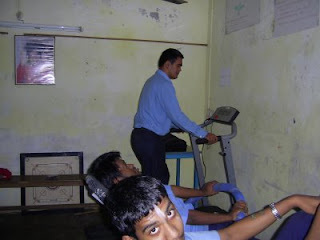“Employers - Your kind attention please –
I shall be an asset to your company. I am your opportunity ”
People with Down's syndrome are capable of learning, forming friendships,gaining employment and leading independent and active lives with differing levels of support.
Many people of working age with Down syndrome are out of work or are not given any opportunity to work
Research has shown that 80% of people with DS of working age want to work and can work.
EMPLOYMENT FOR PEOPLE WITH DOWN SYNDROME
Of a potential workforce of lakhs of people with Down syndrome in our country, hardly any will ever have the chance to prove that they are capable of contributing successfully to their employers or to the nation’s economy. With appropriate training and support, people with Down’s syndrome can and do make a huge contribution at their workplaces. Society must give people with Down's syndrome the same choices and chances as they do to others.
This is an appeal to you to help in making this a reality
SOME ADVANTAGES OF EMPLOYING PEOPLE WITH DOWN SYNDROME
People with Down's syndrome want to work so that they can be independent, earn their own money, learn new skills, meet new people and develop a sense of worth and good self-esteem.
.
In giving a person with Down's syndrome a chance, you will gain keen, reliable, flexible workers who are ready to start at short notice.
People with Down Syndrome bring many benefits to the workplace
- improved staff morale
- good business practice
- reduced staff turnover
- improved staff attendance
- access to an untapped pool of labour
- a positive corporate image, promoting social inclusion and adherence to equal opportunities requirements.
Research has shown that employees with disabilities generally stay in the job for longer than their non-disabled counterparts.
They have a strong commitment to work, as well as good punctuality records and low absentee rates.
Employers recognise that having a workforce that reflects the diversity of the community they serve, makes for good public relations. Having a person with a learning disability in your workforce will enhance your company's image!
What you can do to make it a success
• Look at your procedures to see whether they are difficult for an employee with learning disabilities to comply with.
• Recognise that changes to the job or hours of work, may be required as part of making 'reasonable adjustments'.
• Recognise the 'natural' support provided by work colleagues and nurture this. Provide shadowing or support from a more experienced worker
• Consider whether your methods of communication, and language used, could be made simpler and easier to understand. Speak clearly, avoid jargon, use short words, use short sentences, avoid metaphors. If someone doesn't understand, try asking the question in another way!
• Check that the person has understood and, if necessary, repeat instructions.
• Break the job down into separate tasks.
• Whilst giving information about the job, show the person how to do it!
• Invite the person to perform the task and, if necessary, show again.
• Ability to learn can fluctuate from day to day. Once a task has been learnt, it will be retained but just revisit a task over a period of time to make sure!
• Some people may learn a task but develop their own individual way of accomplishing the task. If it gets the job done, allow the person room for development and creativity!




